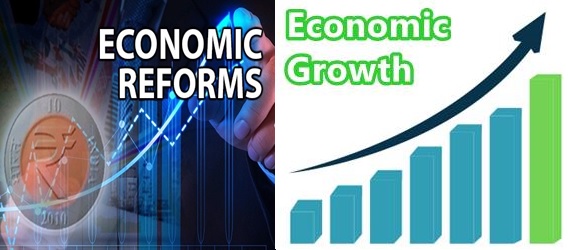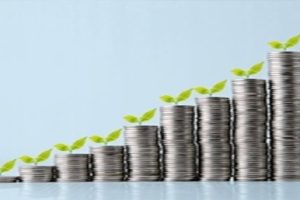
BY MENGESHA AMARE
Cognizant of the fact that declaring an economic sovereignty, economic independence interchangeably, is of a viable password to be well respected and preferred, the recent reform administration in Ethiopia has been working day in and day out to help the nation seize the ladder of success thereby enabling it efficaciously defeat poverty.
It is quite clear why the government has peculiarly focused on economic growth because such a sector has been a backbone of nation’s existence. Besides, every activity has originated from economic power, as other aspects follow once economic independence is secured, and economy is principally decisive to bring about other changes required.
Being endowed with a range of untapped natural resources, possessing low-cost labor as well as having a strategic location, Ethiopia is becoming uniquely preferred east African country, no doubt.
The country’s determined stance to make poverty history is worth noting especially following the recent reform. A number of activities have been undertaken in the nation to help it hit the set mission and the way how the nation is advancing towards development is internally evaluated and scrupulously reviewed with a view to correcting weaknesses and further consolidate strengths in all aspects. For example, Council of Ministers weighed the six month performance of this fiscal year (2015 or 2023).
In a half year performance evaluation report offered in the presence of Prime Minister Abiy Ahmed (PhD) at HallalaKella, part of ‘Dine for Ethiopia’ Project, a range of sectors has been reviewed. In that specific juncture it was indicated, taking the past six months performance as a frame of reference, that the economic growth of the country would show a 7.5 percent growth this budget year.
As the Premier all the time accentuates, bringing about change in Ethiopia, be it economic, social even political spheres, would be easy if the country can be in a position to well rein theft, embezzlement, and act of seeking short cut to prosper.
He said, “We should reduce spirit of extravaganza, keep producing via focusing on homegrown economy, avoid theft and laziness, choose peace over conflict, diligence over laziness and honesty over disloyalty.”
Obviously, the premier is committed to push Ethiopia forward and hit its vision to become Africa’s leading economy by 2030. He has well focused on the significance of entertaining homegrown economic reform.
It was also indicated that of the sectors reviewed, agriculture especially crop development has brought about remarkable development. Following the session, respective ministers of some sectors, the leading ones perhaps, forwarded their respective ideas about the six months performance report especially centering the ministries they have been in charge of leading.
As to Agriculture Minister, Girma Amentie (PhD), the sector is now being the fundamental basis of the Ethiopian economy as it has become the mainstay of national frugality. As new initiatives and lucrative approaches, incentives and other relevant measures have been put in place especially for the last three to four years, the sector has been able to bring about credible change. As to him, agriculture is an engine of growth as it feeds a learning-by-doing elegance to the manufacturing sector.
Following government commitment to make the sector better and expand mechanization, highly promising steps have been taken and the agriculture sector has shown progress and promising speculations are foreseen.
Minister of Industry, Melaku Alebel, on his part said that the sector has been well motivated especially following the ‘Ethiopia produces’ initiative. “We are able to introduce some six product types to the export market within the past six months, but we planned to get five new products introduced to international market. This means we are able to see the unseen markets so far. As we have worked hard, apart from fostering import substitution we are able to export produces of a variety of product types. Though we have passed through a range of hurdles, we have attained what we have planned even more; this indicates that we can do more if activities are run diligently and collaboratively.”
According to the Minister the Ethiopian government has attached due emphasis to boosting the manufacturing sector and developing local technological and marketing capacities. As to him, a major driving force behind this remarkable achievement would be means of mobilizing resources for investment in economic infrastructure and human capital via harnessing the country’s natural resources.
Melaku further stated that the economic reform has envisaged infrastructure led growth. Yes, the economic reform package of the country, as to government officials, is aimed at securing returns on investments in infrastructure by liberalizing particular sectors and encouraging international companies to set up operations in the country’s industrial parks.
Not only is Ethiopia positioned as a long-haul transfer hub but it is increasingly becoming an important destination for a variety of agricultural products and manufacturing, he said.
Minister of Education, Prof. Berhanu Nega, on his part said; “we have well identified the problem of the education sector with credible evidences. What matters is how we can overcome problems identified from what we have been experiencing so far.”
Prof. Berhanu further accentuated that the emphasis given to the education sector has to be triplicated to make real difference in all aspects. Besides, greater effort must be made to provide educational opportunities to students in rural areas. He further stated that there must be an effort to maximize quality and reinvigorate proper way of sieving students to lift the nation from the grip of educational problem it finds itself in. This would be easy to do so if everyone acts responsibly towards producing competent generation who can take over the country with its future.
As to him, without improving school quality, developing countries like Ethiopia will find it difficult to improve their long run economic performance. As significant improvement in the development sector is only likely when political stability is restored and Ethiopia’s growth returns to healthier levels, the government has reversed situations happened in the northern part of the nation to normalcy.
It is an undeniable fact that the nation of close to 120 million populations has been one of the world’s fastest-growing economies over especially over the past few years, boosted by heavy infrastructure investment despite hurdles emanating from COVID 19 and northern conflict.
Taking the fertile ground created for the last three to four years, Ethiopia expects to record robust economic growth. Basically, the presence of a range of factors like conflict, climate change induced drought in some parts of Ethiopia, among others have largely thwarted country’s ongoing effort to contain the galloping cost of living.
In a nutshell, Ethiopia has marvelous opportunities like the commercialization of fruit, vegetable and ornamental plant productions despite the numerous challenges. The country has also ample opportunity in the areas of animal production as it is ranked first in Africa in terms of the number of livestock heads. Besides, Ethiopia does have a huge labor force and water resources, diversified horticultural crops, untapped natural resources, to get it prosper.
Therefore, the country has to focus on agriculture, industry, among others to make its vision of enlisting itself under the category of middle income countries within the shortest time possible real via fueling transformation. Such a bold step unequivocally helps the nation defeat poverty.
THE ETHIOPIAN HERALD WEDNESDAY 8 FEBRUARY 2023




